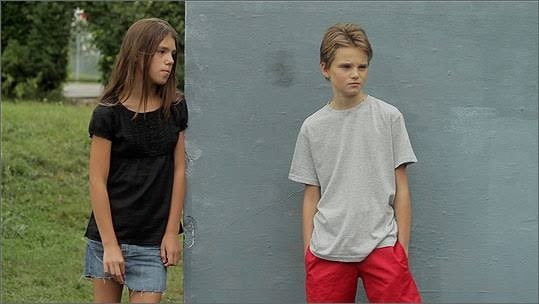Tomboy (2011) is a poignant French drama written and directed by Céline Sciamma, exploring themes of gender identity, childhood, and self-discovery with remarkable sensitivity. The film follows Laure, a ten-year-old girl who, after moving to a new neighborhood during summer, introduces herself as “Mickaël” to her new friends. As Laure becomes immersed in her new identity—forming bonds, especially with a girl named Lisa—maintaining the facade becomes increasingly difficult, culminating in a deeply emotional reckoning.

Rather than relying on melodrama, Sciamma crafts an intimate portrait of a child navigating identity through the lens of quiet, everyday moments. Zoé Héran delivers a stunningly natural performance as Laure, conveying complex emotions with subtle gestures and expressions. The film’s visual language—soft lighting, handheld camerawork, and close framing—enhances its realistic, immersive tone.

One of Tomboy’s greatest strengths lies in its restraint. It eschews heavy exposition for emotional nuance, portraying childhood as a time of fluidity and exploration, where identity is still forming and malleable. The film doesn’t offer definitive answers or judgments—it invites empathy and observation, encouraging viewers to sit with Laure’s experience. The family dynamics, particularly Laure’s relationship with her younger sister Jeanne, offer warmth and authenticity, grounding the story in a tender domestic reality.

Critically acclaimed upon release, Tomboy earned accolades including recognition at the Berlin International Film Festival. It has since become a cornerstone in LGBTQ+ cinema, sparking global conversations around gender, identity, and the freedoms—and constraints—of childhood.
